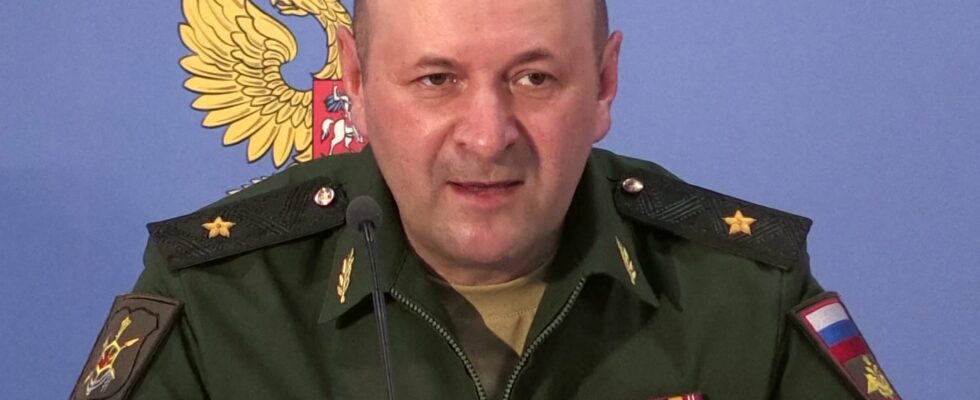A very rare attack in the heart of Moscow. A senior officer in the Russian army, General Igor Kirillov, 54, was killed on Tuesday, December 17, in an explosion near a residential building in the southeast of the city. “The commander of the Russian radiological, chemical and biological defense forces, Igor Kirillov, and his assistant were killed,” the Russian Investigative Committee said after the assassination, which occurred early in the morning.
Shortly after the operation, Ukraine claimed, through its SBU secret service, to have ordered the death of the Russian official. On Monday, kyiv had already accused the latter of “war crimes” for having implemented the use of chemical weapons against Ukrainian troops. Igor Kirillov has also been placed under sanctions by the United Kingdom since October for the same reasons.
Explosion near residential building
What exactly happened? According to Russian investigators, the explosive device was placed on a scooter parked near the entrance to a residential building on Ryazansky Avenue in Moscow. “The sound of the explosion was very loud,” Mikhail Mashkov, a 19-year-old student who lives in a nearby building, told AFP. Several windows of surrounding buildings were also blown out by the explosion. Significant police resources have been deployed in the area, in a capital that is usually ultra-secure.
Svetlana Petrenko, the spokeswoman for Russia’s Investigative Committee, called the explosion a “terrorist act.” “A special investigation unit was deployed to establish the circumstances of these crimes and the circle of people involved in these acts,” said the official, according to comments reported by the American channel CNN. But, beyond this statement, no other reaction from the Kremlin or Vladimir Putin has yet been communicated. Former Russian President Dmitry Medvedev, however, deplored an “attempt to intimidate our people, to stop the advance of the Russian army and to sow fear […] doomed to failure.”
Alleged use of chemical weapons
Igor Kirillov did not lead the unit directly linked to the nuclear arsenal held by Russia. But its role in the alleged use of chemical weapons in Ukraine has been particularly singled out by the Ukrainian authorities in recent weeks. Since February 2022, more than 4,800 cases of use of “chemical munitions” by the Russian army have been recorded, according to the SBU. Acts regularly refuted by Moscow, which describes these accusations as “absurd”.
London, which had also denounced the “deployment of barbaric chemical weapons in Ukraine” in the fall, reacted to the assassination of the high-ranking Russian officer. “We are not going to mourn the death of an individual who took part in an illegal invasion and imposed suffering and death on the Ukrainian people,” British Prime Minister Keir Starmer’s spokesman told reporters a few hours ago after the explosion.
